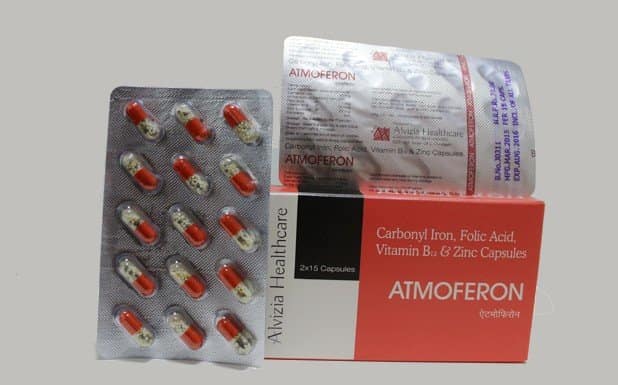
Zinc is a mineral. It is called an "essential trace element" because very small amounts of zinc intake is necessary for good human health. Since the human body does not store excess zinc, it must be consumed regularly as part of the diet. Common dietary sources of zinc include red meat, poultry, and fish. Zinc deficiency can cause short stature, reduced ability to taste food, and the inability of testes and ovaries to function properly. Zinc supports normal growth and development for all ages. Zinc also helps your body use carbohydrates, protein and fat, strengthens the immune system, and helps heal wounds.
Uses of Zinc to treat several diseases
Zinc is taken by mouth for the treatment and prevention of zinc deficiency and its consequences, including stunted growth and acute
diarrhea in children, slow wound healing, and Wilson's disease.
It is also used for the treatment of diseases like common cold ear infections, the flu, respiratory tract infections, swine flu and
bladder infections. It is also used for malaria and other diseases caused by parasites.
Zinc is also used for treating eye diseases such as night blindness, and for cataracts. It is also used for asthma and diabetes,
high blood pressure; AIDS/HIV, AIDS/HIV-related pregnancy complications. It is also taken for depression and alcohol-related liver
disease and stomach ulcers.
It is also taken for quite a large type of cancer prevention. It also helps in skin related problems with adults as well as babies such
as burns, diaper rash and leprosy. Zinc is also applied to the skin for treating acne and brown patches on the face.
Zinc citrate is used in toothpaste and mouthwash to prevent dental plaque formation and gingivitis. Zinc is also used in chew gum,
candies, and mouth rinses to treat bad breath.
What are the symptoms of Zinc deficiency?
Zinc deficiency is a common problem prevailing worldwide. Symptoms include:
What are the uses of Zinc?
Zinc is an "essential trace element" because our bodies only need very small amounts of it everyday. Zinc help the body in two ways:
ZINC reduces the duration and severity of diarrhea in children who are undernourished or zinc deficient.
Zinc has a crucial role in regulating how neurons communicate with one another, affecting how memories are formed and how we learn. Zinc improve condition of hyperactivity and impulsiveness.
Zinc lozenges shorten the duration and severity of common cold.
Zinc plays a role in maintaining skin integrity and structure. Patients experiencing chronic wounds or ulcers often have deficient zinc metabolism and lower serum zinc levels.
Improving zinc status through diet and supplementation may reduce the risk of inflammatory diseases.
Zinc helps in treating skin problems such as Acne. Taking zinc appears to help treat acne.
Giving zinc intravenously ogether with other minerals seems to improve wound healing in people with burns.
Giving zinc gluconate by mouth to infants seems to speed up the healing of diaper rash.
Zinc is also used to treat leprosy.
Taking zinc seems to help treat muscle cramps in people with cirrhosis and zinc deficiency.
Low zinc intake seems to be linked to lower bone mass. Taking a zinc supplement in combination with copper, manganese, and calcium might decrease bone loss.
Research suggests that chewing gum, sucking on a candy, or using a mouth rinse containing zinc reduces bad breath.
Applying zinc paste appears to help improve the healing of bed sores in elderly people. Also, increasing zinc intake in the diet seems to improve bed sore healing hospitalized patients with bed sore.
Side Effects of Zinc
Zinc is SAFE for most adults but only when applied to the skin, or when taken by mouth in amounts not larger than
40 mg daily. Routine zinc supplementation is not recommended without the advice of a healthcare professional. In
some people, zinc might cause nausea, vomiting, diarrhea, metallic taste, kidney and stomach damage, and other side
effects. Using zinc on broken skin may cause burning, stinging, itching, and tingling.Taking high amounts of zinc is
LIKELY UNSAFE. Zinc has many health benefits, but excessive zinc intake can be harmful. Adverse effects of severely
high zinc intake may include:
